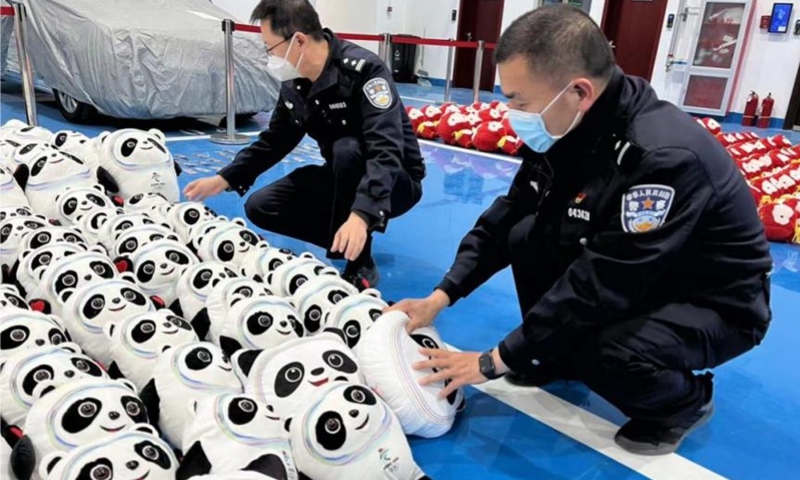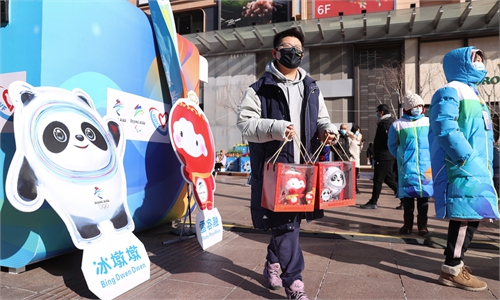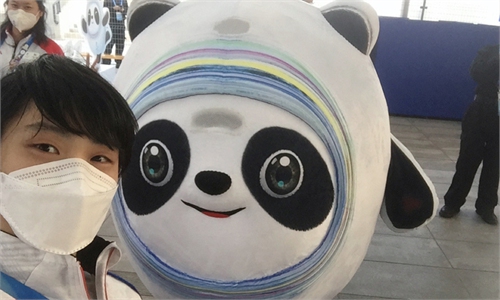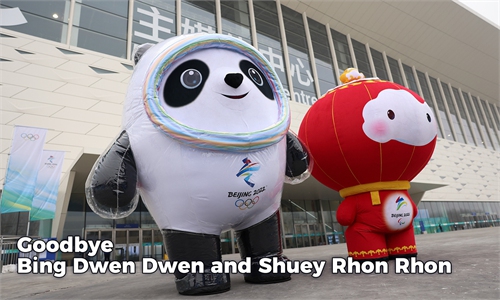Chinese police launch crackdown on forgery cases of mascots Bing Dwen Dwen and Shuey Ryon Ryon

Beijing police seized a batch of fake Bing Dwen Dwen and Shuey Ryon Ryon toys.
The successful hosting of Beijing 2022 Winter Olympic and Paralympic Games has made Winter Olympic mascots Bing Dwen Dwen and Shuey Ryon Ryon very popular. However, some people tried to profit from the commercial boom of the mascots by counterfeiting and selling licensed goods without authorization.
Recently, public security organs across the country have quickly investigated and solved a number of major Winter Olympics-related crimes of intellectual property rights infringement.
In December 2021, a security team of the Beijing municipal public security bureau successfully cracked down an online case of forged mascot sale. With the cooperation of other public security organs, the team has destroyed six production, sales and storage dens. More than 1,200 fake Bing Dwen Dwen and Shuey Ryon Ryon dolls as well as a large number of raw materials were found on the scene, and 14 online shops were closed.
The illegal production and sale of counterfeit mascots were thus completely stopped.
Gu Ran, head of the security team of the Beijing Public Security Bureau (Shijingshan Branch), told the Global Times that at the end of November 2020, they received reports from citizens who had purchased sets of Bing Dwen Dwen and Shuey Ryon Ryon mascot dolls for more than 90 yuan ($14) from an online trading platform. When the customers received the goods, they found that the dolls showed low-quality workmanship and they became suspicious about their authenticity.
The Beijing Winter Olympics Organizing Committee then verified that a substantial amount of mascots sold online are imitations.
Gu said that after the case was filed in December 2021, the branch quickly set up a task force under the guidance of the Beijing Municipal Public Security Bureau, and mobilized elite police to investigate the case. At the end of the month, the task force caught three suspects in other provinces, and found more than 350 fake Bing Dwen Dwen and Shuey Ryon Ryon mascot dolls on the scene.
At present, the local people's court sentenced the three suspects to 8 to 10 months in prison and a fine of 10,000 yuan ($1,569) for selling goods with fake registered trademarks.
In a coordinated operation, the Guangdong public security organ soon followed a trail of clues that led them to a group of suspects selling of fake Bing Dwen Dwen dolls. The police targeted the online wholesalers and counterfeit factory involved in the case in a precision strike.
At the end of the operation, eight suspects were arrested, six production and sales dens were destroyed, four production lines and 55 sets of machinery and equipment were seized. What's more, three sets of three-dimensional hanging moulds, more than 58,000 finished and semi-finished hanging moulds, and more than 30,000 units of packaging materials with the Olympic rings logo on them were also taken away by the authorities.
At the same time, public security organs in East China's Zhejiang Province, East China's Jiangsu Province, East China's Fujian Province, and other areas were proactive in uncovering and shutting down a number of forgery cases involving the production and sale of counterfeit dolls, pendants, sportswear and commemorative medals that infringed on the Winter Olympics intellectual property rights.
According to Liu Zhengtao, deputy director of the contract management and brand protection department belonging to the Beijing Winter Olympics Organizing Committee, the department has filed a series of complaints to government law enforcement departments in accordance with the law, and cooperated with public security organs, customs, market supervision and management departments to identify clues related to infringement cases.
As of April 14, the market development department cooperated with public security authorities to help identify a total of 35 cases.
According to the Regulations on the Protection of Olympic Symbols, no one is allowed to use the Olympic symbols for commercial purposes without the permission of the owner of the Olympic symbols, said Pei Xudong, a senior officer with the Beijing Municipal Public Security Bureau.
Infringement of the intellectual property rights of the Winter Olympics will be subject to legal sanctions, and serious cases will face criminal penalties, Pei noted.



